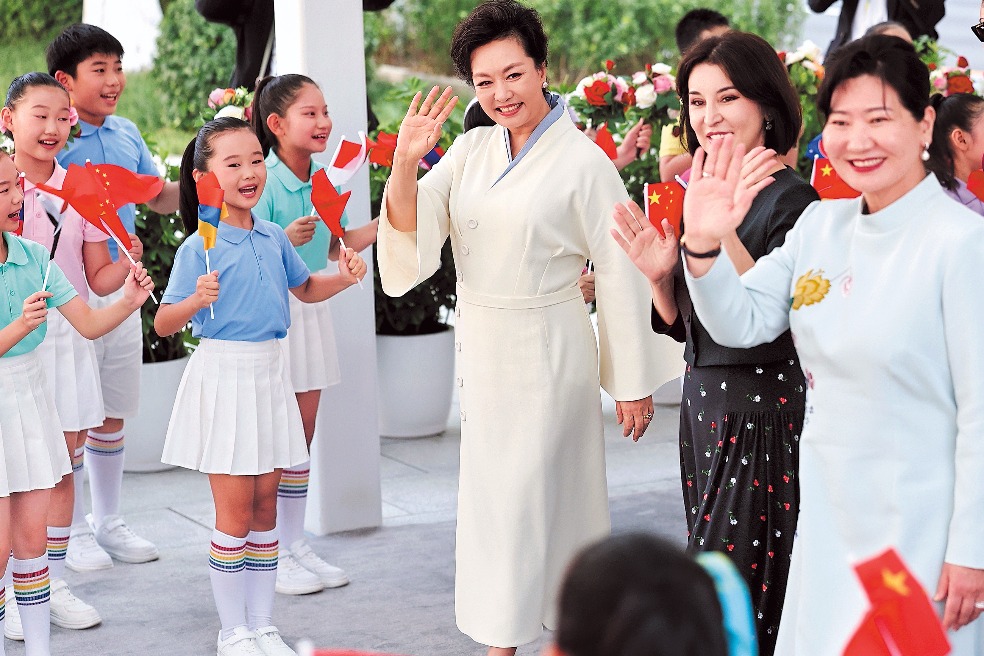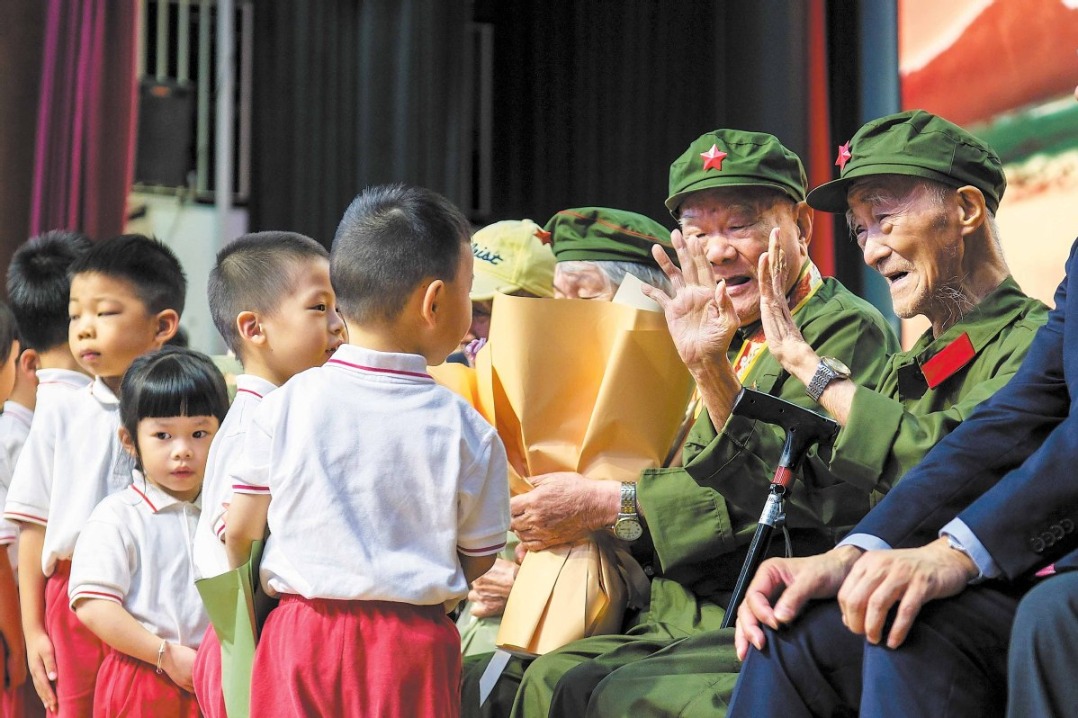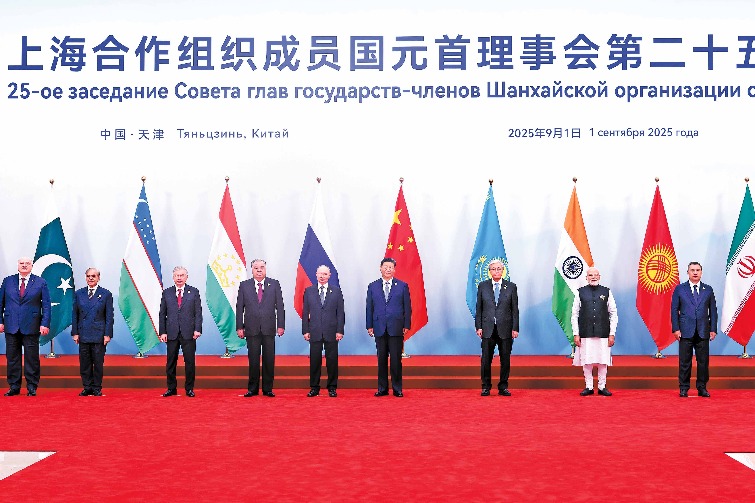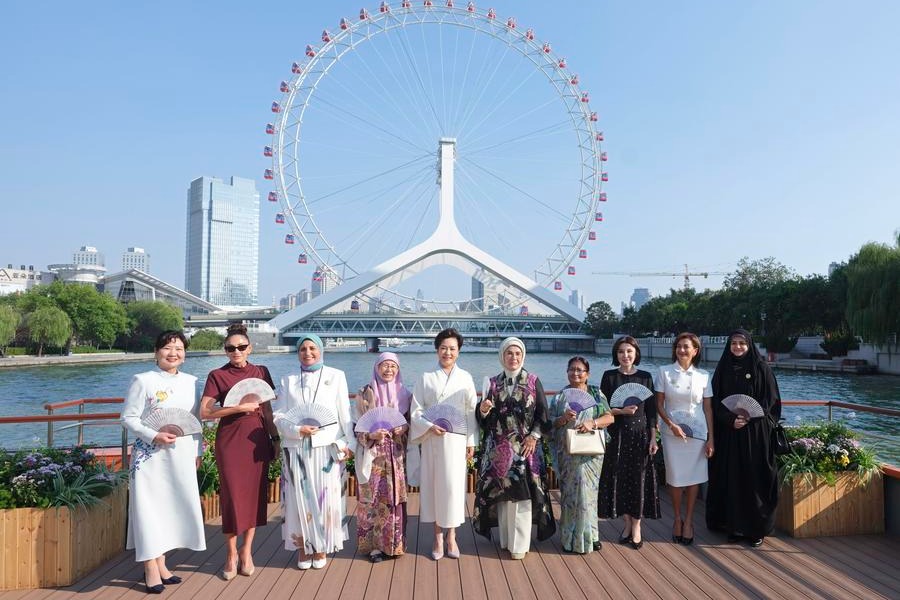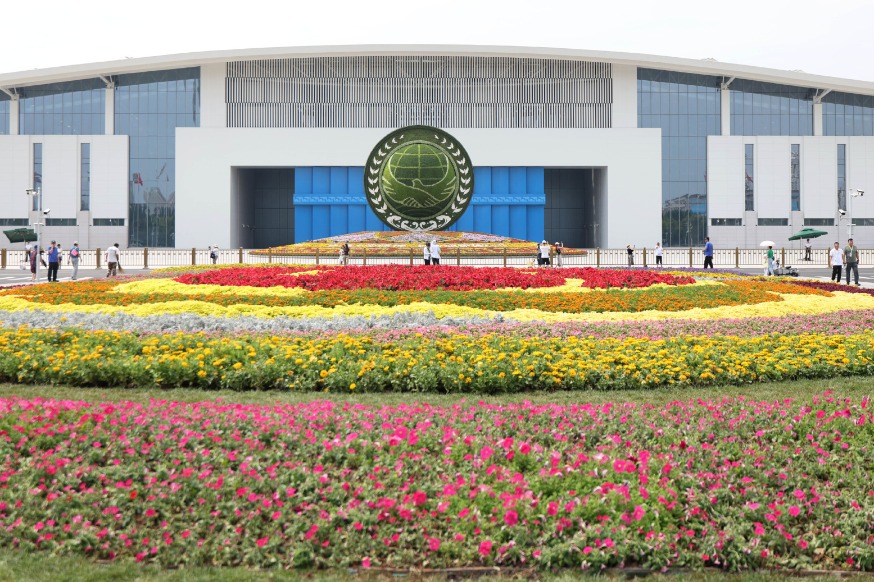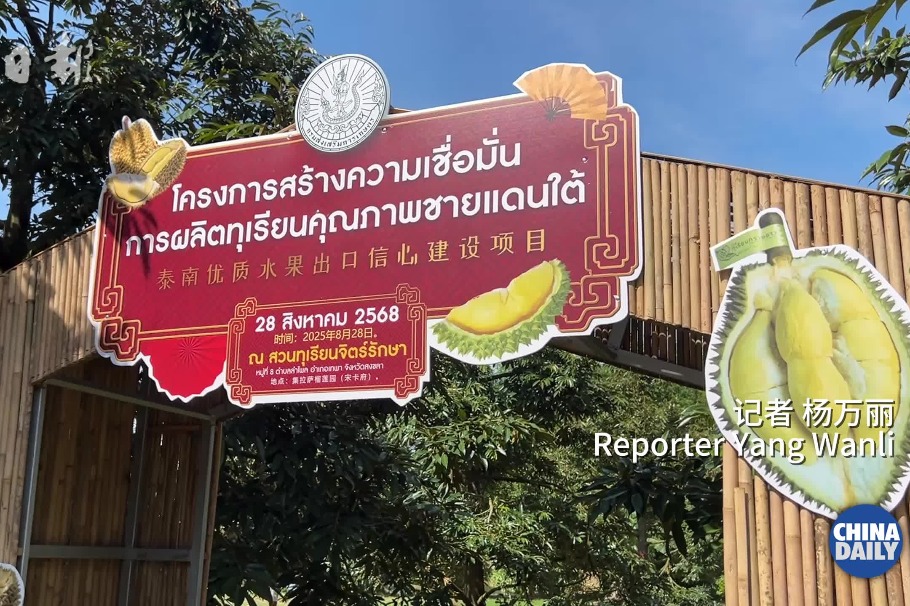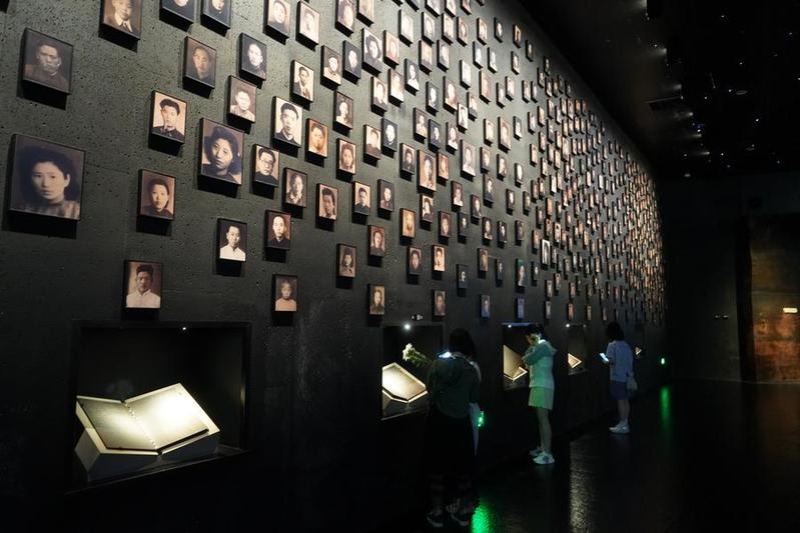Greater ambition
Connectivity, regulation and collective leadership can chart an elevated course for the SCO


For 24 years, the Shanghai Cooperation Organization has achieved fruitful results in coordinating and aligning the interests of relevant actors in the region and beyond by pursuing common goals and tasks.
Up to now, the SCO's efforts have primarily concentrated on the security dimension, with the economic and humanitarian agenda being less emphasized. This approach worked well while the member states were combating extremism, separatism and terrorism, as well as drug trafficking. However, over time, the priorities of the member states have naturally changed. The SCO's efforts in the security dimension are still relevant and are highly appreciated by all members, but what these countries now need and focus on in their national agendas is social and economic development. Shared aspirations for enhancing connectivity, building infrastructure and strengthening the overall capacity for sustainable growth and public welfare are what unite the SCO member states.
A development-driven approach may therefore bring new strength to the SCO. Rethinking the opportunities presented by the SCO's expanding footprint, enhancing regulatory cooperation to address shared major challenges and fostering collective leadership for a multipolar world can elevate the organization's ambitions to new historical heights.
First, as the SCO has evolved, it has significantly expanded its geographic scope. It is no longer exclusively limited to Central Asia. Although the region is still at the heart of the SCO's efforts and will be for years to come, the SCO now extends to South and West Asia. With new members onboard, namely India and Pakistan and more recently Iran and Belarus, new options have emerged for promoting Eurasian connectivity, specifically for developing transport corridors from north to south and from east to west. Moreover, the current geopolitical dynamics are driving the reconfiguration of transport corridors. A notable example is the practical work being carried out to implement the China-Kyrgyzstan-Uzbekistan railroad project. These new opportunities should be utilized properly and timely.
Second, new spheres of cooperation and the need for shared efforts arise from challenges stemming from geopolitical shifts, technological advancements, digital transformation, AI development and climate change. What may be effective in addressing these challenges is not a preferential trade agreement or expansive free trade zone for the SCO members, but rather issue-focused and sector-specific agreements. We now live in a very different world from that of two or three decades ago when globalization and "hard" institutes were trendy. More flexible modalities are needed to enable agreements that respect national agendas and capacities. A good option for the SCO might be to move beyond the traditional tariff reduction philosophy toward strengthening regulatory cooperation in e-commerce, investments and trade, environmental protection standards, and the digitalization of customs procedures, etc. The economic dimension of the SCO activities has traditionally been underscored by the different levels of readiness to deepen liberalization practices and broaden trade commitments among the SCO members. The regulatory cooperation is not all new — the SCO countries have been working on it for the past several years. But what might be new is that putting the regulatory cooperation at the core of the SCO activities. Moreover, practical efforts to implement existing agreements are to be strengthened, which has not always been the case on the SCO's economic agenda.
Third, the contemporary world is characterized by a deficit of leadership. In this era of evolving multipolarity, the only plausible way to navigate complex global dynamics is through collective leadership. This does not mean that the SCO itself should take on leadership responsibilities, but it might be a valuable undertaking for the SCO member states to make their contribution to the development of norms and rules in emerging and pressing areas such as AI governance, cyber security, e-commerce, green transition and food security.
Moreover, each SCO country has accumulated expertise and achievements in different domains, for example, in combating sanctions or eradicating poverty. Broadly sharing such expertise within the SCO framework would add substance to the organization's activities.
China, as this year's rotating president, has notably held multiple forums and events within the SCO framework, such as the Global Mayors Dialogue, the Digital Economy Forum, the Media and Think Tank Summit as well as the Annual Conference of SCO University, to name just a few. Thousands of academics and practitioners are sharing their expertise in smart city governance and management, media and communication, as well as more complex issues such as AI and data governance. Cities, universities and think tanks as well as tech companies are evolving governance actors that the SCO needs to embrace to build its capacity beyond security.
With this said, further steps in this direction may require new institutional arrangements, for example creating special purpose funds that will accumulate financial resources to support targeted projects. The latter may include sharing competence in smart urban governance or building academic networks or educational initiatives for entrepreneurial and corporate sectors.
A particularly promising avenue for this development-driven approach lies in fostering direct collaboration between the major urban centers and academic institutions within the SCO member states. City-to-city partnerships, often referred to as sister-city programs, can serve as dynamic laboratories for practical innovation. By facilitating the exchange of best practices in areas such as smart city management, public transportation, waste management and digital governance, these subnational partnerships allow for agile and targeted cooperation that directly improves public welfare. The success of such initiatives can provide tangible, scalable models for national policies, turning urban centers into engines of sustainable growth within the SCO framework.
Concurrently, deepening university collaboration is essential for building the long-term human capital necessary to sustain this development. Expanding existing initiatives such as the Annual Conference of SCO University to include more joint research programs, dual degree offerings and specialized scholarships would cultivate a generation of experts and leaders with a shared understanding of regional challenges. Focusing research efforts on shared priorities, such as renewable energy, water resource management and digital infrastructure, can pool intellectual resources and accelerate innovation. This academic synergy not only fuels economic development but also strengthens people-to-people ties, creating a durable foundation for the SCO's future that extends beyond governmental dialogue.
The inclusive nature of the Shanghai Spirit ensures that the new institutional structures of the SCO, which focus on city-to-city, academic and business collaboration, will flourish and support a new economic order to emerge faster in a more sustainable way.
Yana Leksyutina is deputy head of the Institute of China and Contemporary Asia at the Russian Academy of Sciences. Igor Khodachek is vice-rector for research and director of the Center for Eurasian Studies at European University at St. Petersburg. The authors contributed this article to China Watch, a think tank powered by China Daily.
The views do not necessarily reflect those of China Daily.
Contact the editor at editor@chinawatch.cn.
















